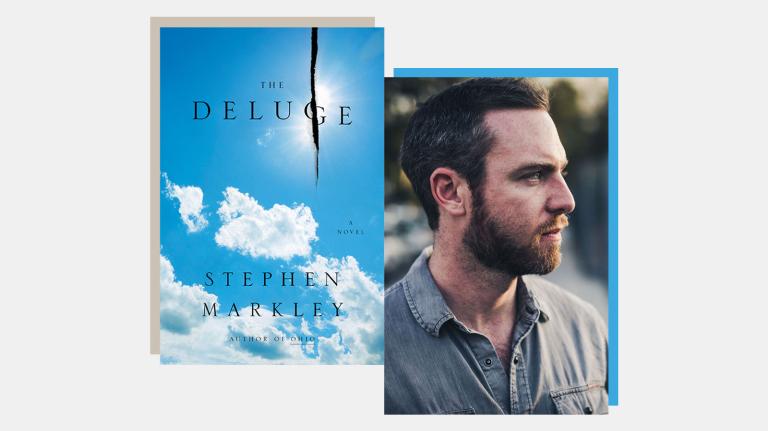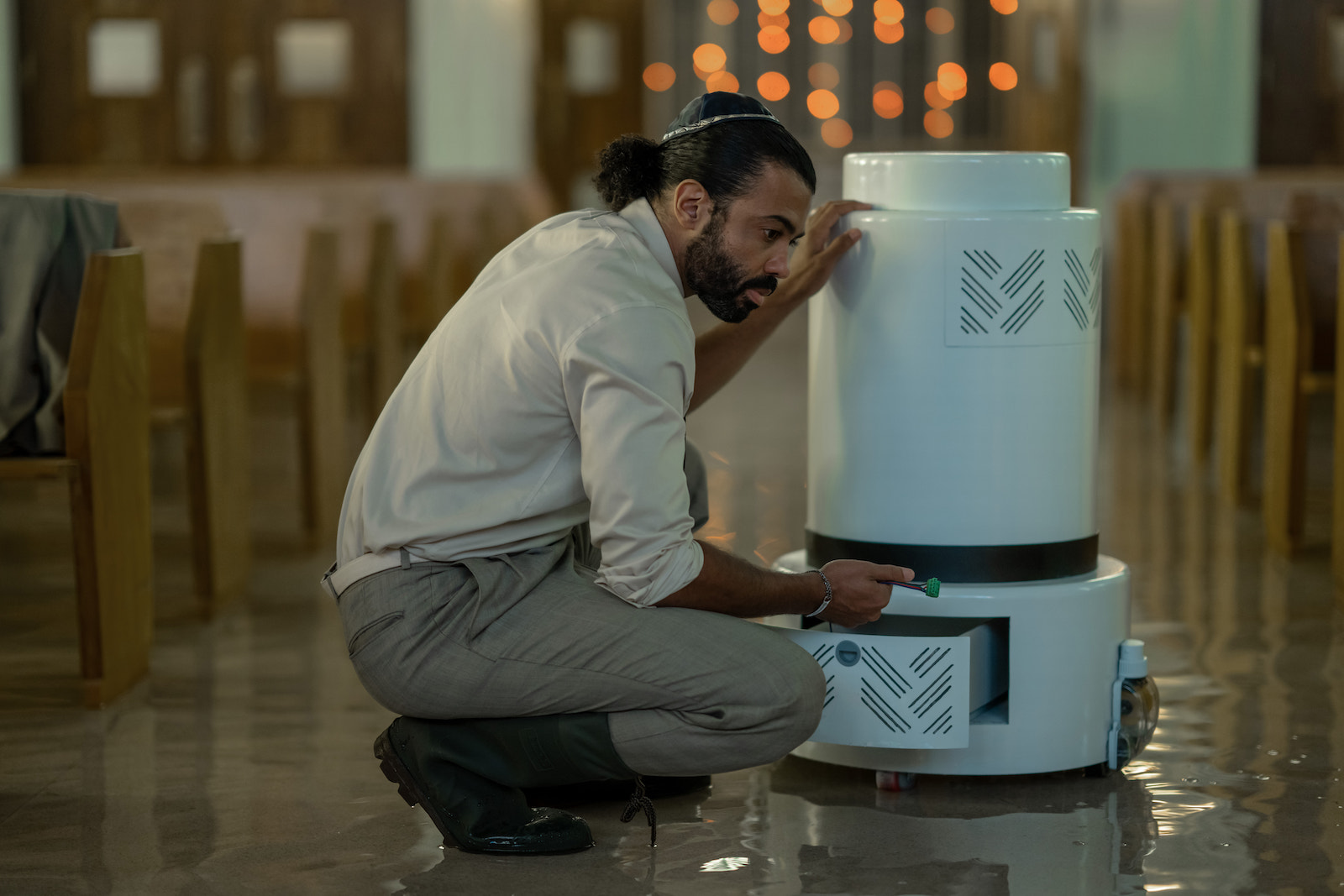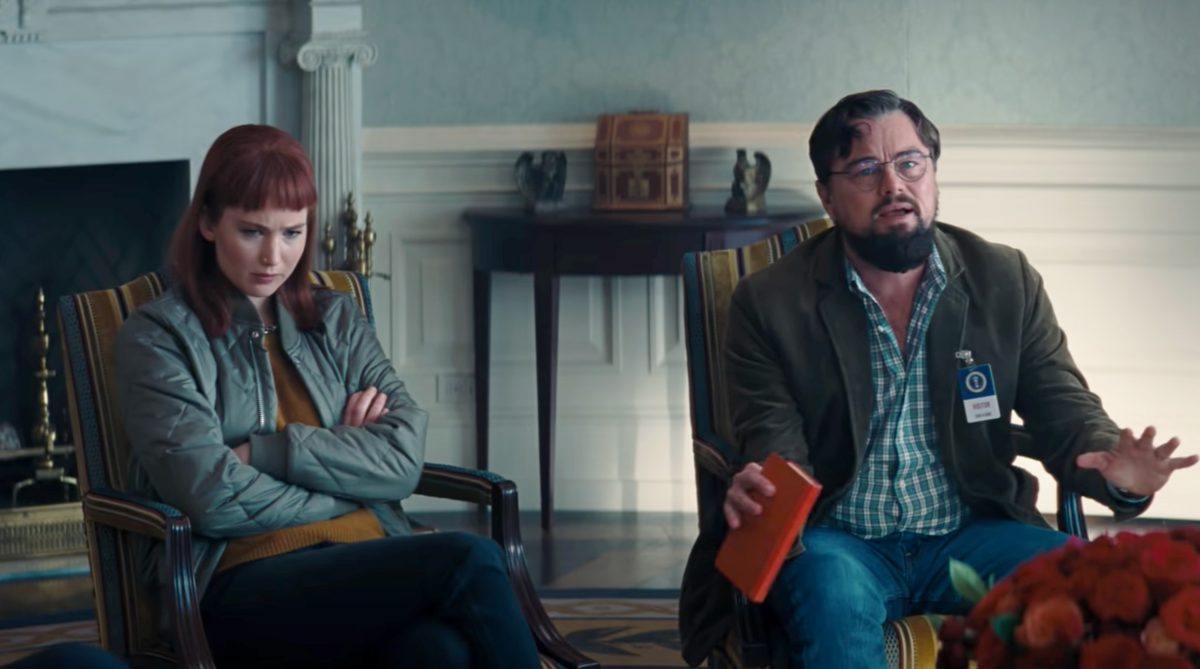If Hollywood has the power to shape our collective imagination for good, it has too often failed when it comes to compelling stories about climate. But that untapped power is part of what makes Extrapolations, the new Apple TV+ series being touted as the biggest-budget scripted TV show ever made about global warming, so intriguing.
Despite its unflinching focus on the existential crisis of our times, Extrapolations resists the temptation to dwell exclusively on end-of-the-world narratives. The series manages to fold the requisite wildfires and epic storms into a more complex narrative of a society that hasn’t evaded climate catastrophe but hasn’t ended, either.
“There has been so much storytelling done around the post-apocalyptic, denuded world,” said producer and screenwriter Scott Z. Burns. “But before we get to that end, there’s a lot of messy middle.”
With the help of an absurdly star-studded cast — Meryl Streep, Kit Harington, Daveed Diggs, Sienna Miller, Gemma Chan and Marion Cotillard are less than half of the big names involved — the eight-episode series sets out to imagine what life on our warming planet might look like in the very near future using interconnected vignettes that take place everywhere from Mumbai to Miami.
“[Screenwriters] have this role to play in helping us understand these watershed moments,” Burns said, “and obviously, climate change is the big existential crisis of our time.”
While there’s plenty of climate science powering Extrapolations, the show focuses on the kinds of connections that can’t be adequately conveyed via a hockey stick graph — not that Burns doesn’t have experience trying. Nearly 20 years ago, he produced An Inconvenient Truth, arguably the most influential climate documentary ever made. For many Americans, An Inconvenient Truth was a wake up call to the very existence of climate change. Ever since then, as humans have increasingly felt the effects of rising CO2 firsthand, Burns has been wondering what more he can do.

“Coming from having done An Inconvenient Truth, I think [Burns] felt like he had done everything he could to communicate the scientific reality with images and text and words to say, ‘Here is what is happening to the planet,’” said Dorothy Fortenberry, a former Handmaid’s Tale screenwriter who Burns recruited as his Extrapolations co-showrunner. “But what a documentary can’t capture is what it will feel like.”
When crafting each episode, Extrapolations writers started with the science – say, how many degrees of warming we might expect in 2037 — and tried to imagine how that scenario might impact the everyday lives of people around the world. The show follows a bevy of characters (in the first three episodes alone, these include an international climate conference delegate from a drought-stricken country, a tech billionaire, a rabbi in a coastal city, a wildlife researcher and a kid with a chronic, heat-induced health issue) whose trajectories are shaped by the changing climate.
“We wanted to make something that someone who knew a medium amount or a large amount about climate change could watch and wouldn’t feel like, ‘They got that so wrong that I have to turn it off,’” said Fortenberry. “But we also didn’t want to have so much science or data that a person who had never thought about climate change would feel alienated or excluded.”
Extrapolations doesn’t try to bury its nods to real-world climate wonkiness. There are United Nations climate conference negotiations portrayed onscreen, complex story arcs exploring the pros and cons of geoengineering, and nods to the ongoing existence of activist groups like Extinction Rebellion and Sunrise Movement in the future.
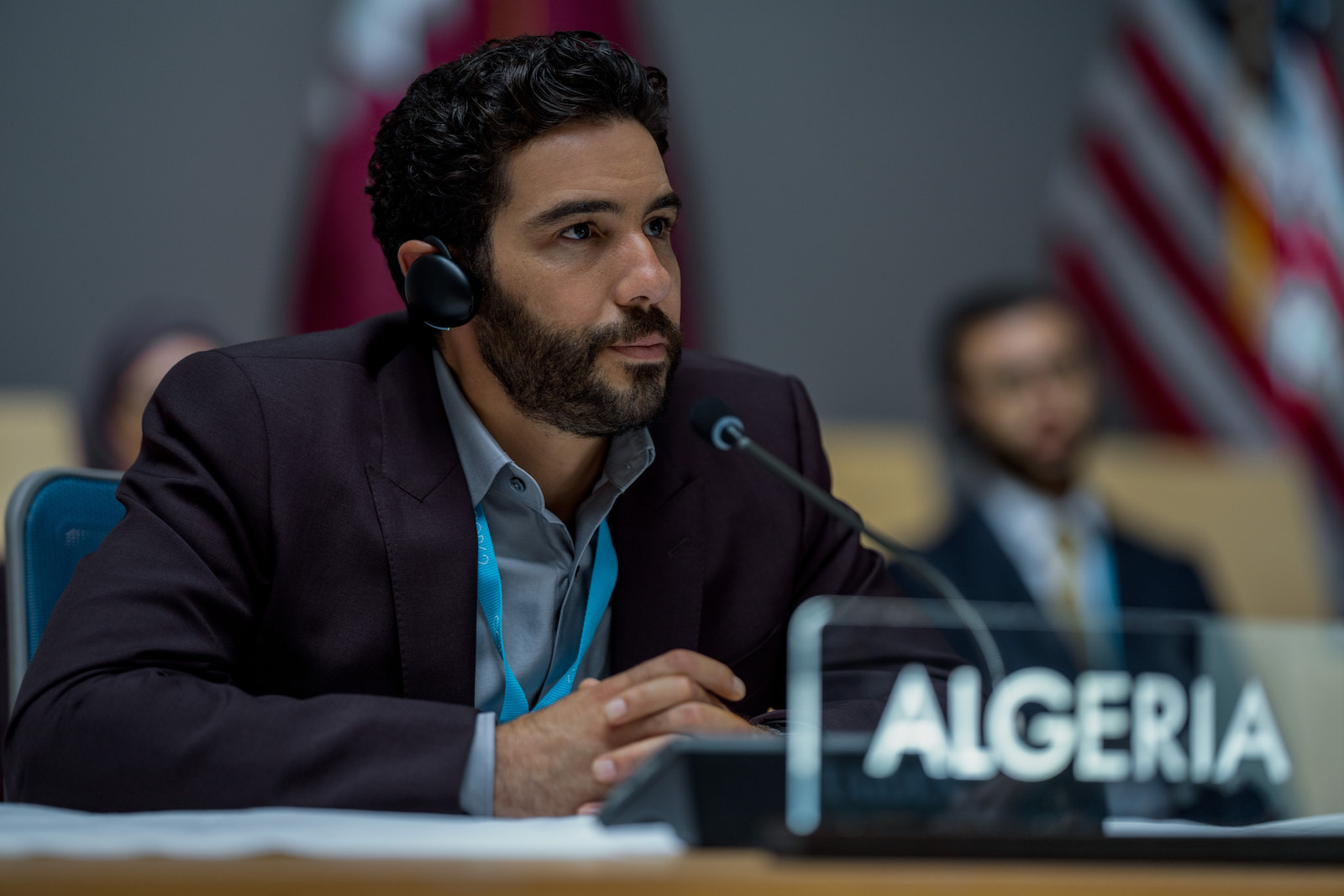
Rather than distract, these heightened callbacks to our current climate-impacted reality demonstrate the dramatic potential that has always been hiding between the lines of IPCC reports. But it’s taken writers who actually understand the stakes, as well as the science, to tease that out.
Throughout the process of developing the show, the showrunners sought out notable climate thinkers and writers in the space to ground their script in relevant literature: Burns references Amitav Ghosh’s The Great Derangement, calls Earth Day co-founder Denis Hayes his “environmental mentor,” and notes that he had conversations with Bill McKibben and Elizabeth Kolbert. (Readers of Kolbert’s The Sixth Extinction and McKibben’s Falter will find particularly strong echoes of those books in episodes that grapple with extinction and escapist technology, respectively.)
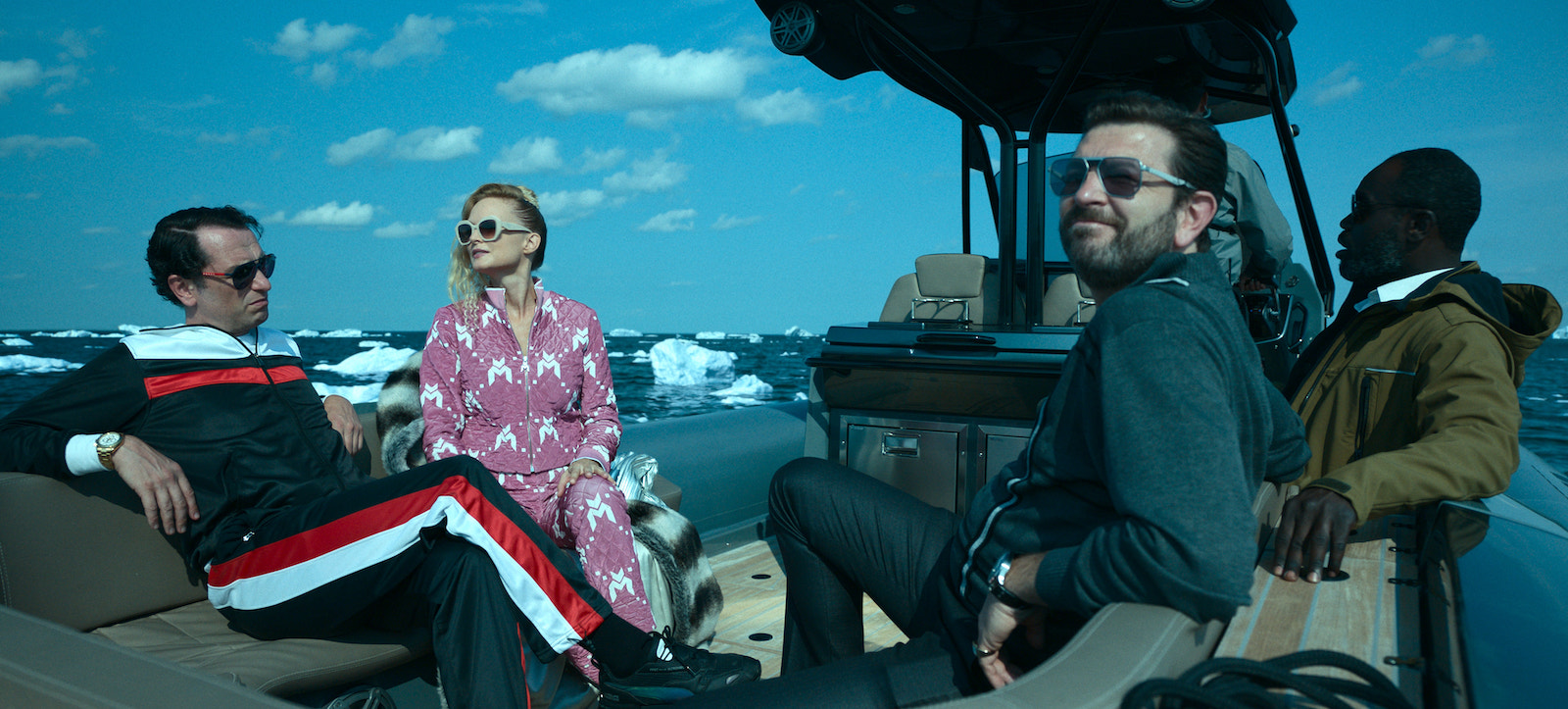
Though the show does take scientific liberties — it is fiction, after all — they tend to come in the form of inventions that allow people to upload their memories to the cloud or change their eye color at whim, rather than anything that majorly distorts climate science. “I wanted to create an event horizon that I thought would make it harder for people to push this issue away and go, ‘Oh, that’s not my world.’ That’s why I wasn’t interested in flying cars, or other world building like that,” said Burns. “I wanted people to look at it and go, ‘Hmm, that looks a lot like my world.”
In the second episode, for example, Sienna Miller’s character uses technology to hold conversations with the world’s last humpback whale, voiced by none other than Meryl Streep. While that animal-translation tech is a product of the screenwriters’ imaginations, the humpback’s current endangered status is not. It’s precisely this combination of the fantastical and the real that hooks viewers into grappling with environmentally uncomfortable topics such as species loss.
The show is a feat of storytelling made all the more remarkable given that less than 3 percent of scripts from 2016 to 2020 touched on anything remotely related to climate change. Of the Hollywood productions that have dealt with climate throughout the years, most have been overwhelmingly apocalyptic (say, 1995’s Waterworld) or based on shoddy science (2006’s The Day After Tomorrow).
That’s not to say that Burns is inherently anti-apocalypse story; he just thinks it shouldn’t be the only option. Burns explains his thinking by recounting a conversation he had with Don’t Look Up director Adam McKay shortly after that film’s release. McKay asked, If there can be 20 cop shows, why not 20 climate change shows? “That’s what I hope for,” said Burns, “that the series that we made would become part of a very large body of work that allows us to look at this problem from every angle.”
With a total runtime of 60 minutes per episode, the first three of which are available starting March 17, Extrapolations feels like a sprawling body of work unto itself. When the show falters, it’s as much a result of what it leaves out as much as what it leaves in: Despite a couple strong episodes led by complex, multifaceted characters of color — Daveed Diggs as a rabbi whose Miami synagogue is sinking, Adarsh Gourav as a truck driver navigating drought-ravaged India — it’s hard not to wish the show had pushed even deeper into trying to tell the stories of frontline communities.
That’s one pitfall of taking such an unbounded approach to the climate story: A show about one particular place and time can be more easily excused for leaving some people out than a show that sometimes spans the globe but still centers mostly Western (and often white, wealthy) viewpoints, even if it frames them critically.
Even so, the showrunners’ attempts to meet the current moment, both in terms of filmmaking and climate zeitgeist, are still laudable. As Extrapolations Executive Producer Michael Ellenberg pointed out, these “big, epic, limited series” didn’t exist 15 years ago. The relatively new format allows the viewer to examine climate change from a number of different viewpoints, devoting entire episodes to geoengineering and coastal flooding rather than relegating the topics to a few minutes of dialogue in a two-hour runtime.
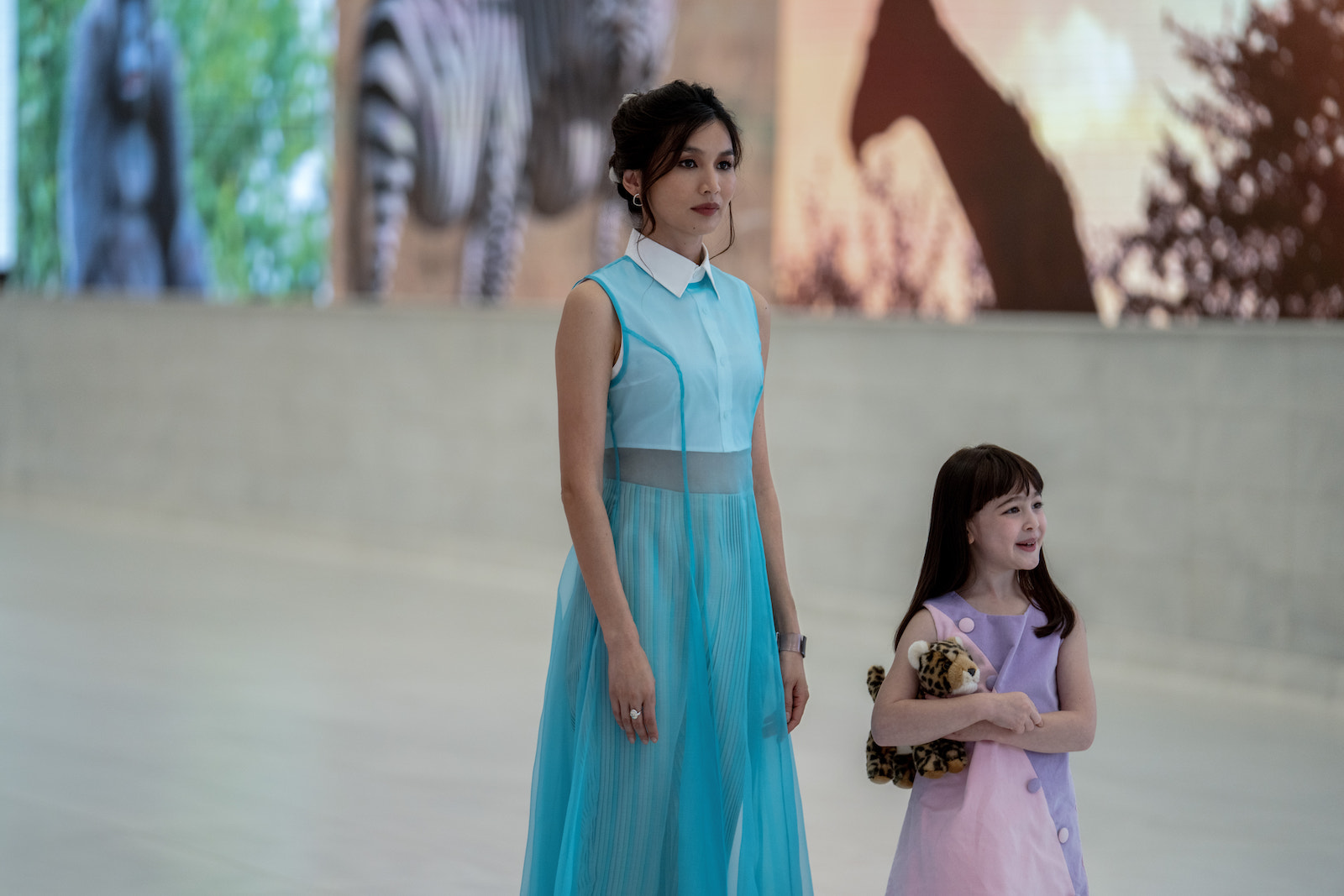
The commercial appeal of an ambitious project about climate change is much higher today than it would’ve been even five years ago, Ellenberg said. Shopping Extrapolations around to the networks, it was clear to him that “this show wasn’t for everybody.” But those who got it, got it: When he pitched the series to Apple, they called to say they wanted it before he had even made it out of the parking lot.
“While this is the first of its kind, we don’t want it to be the last,” he said. “We’re hoping that this encourages more storytellers to tackle this subject with all their creative ambition.”
For people currently sounding the alarm about climate change, Extrapolations is a cathartic (if not always comforting) watch. Fortenberry said the writers wanted the show to resonate with those who already feel the nearness of climate catastrophe but often feel alone in grappling with it, to “disrupt that sense of feeling kind of insane” that can come from experiencing a bizarrely warm winter day and then “going home and watching TV that has a snowy Christmas episode.”
“The very first thing that we can do is just show people: you’re not alone, you’re not crazy, yes this is happening,” she said. Maybe once people know they’re not alone, she hopes, “that gives them the energy to figure out what they want to do about it.”
The result of all these calculations is a show that feels haunting when it reminds us of how close we might be to an unwanted future, whether by exploring the oversized role tech billionaires might have in our climate politics or imagining our night skies filled with smog and the lights of hundreds of drones rather than stars.
But it’s also a series shot through with beauty and moments of unexpected levity as it follows the lives of characters who continue to raise kids, have sex with strangers, ask questions of God, experience meaningful connection with animals, make music, and throw dinner parties even as the global temperature continues to rise — to continue living, in other words, even as the catastrophes unfold around them.
